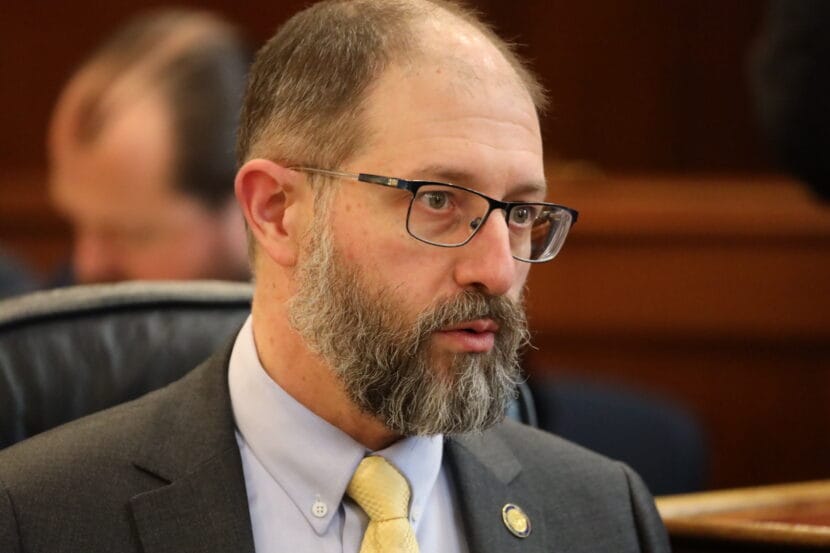
Alaskans who have experienced stalking and domestic violence — or who work as police or correctional officers — aren’t able to hide their addresses from the public. That can put them and their families at risk.
Sen. Jesse Kiehl, a Juneau Democrat, pre-filed a bill that aims to change that.
If passed, Senate Bill 31 would allow law enforcement officers and victims of certain crimes to enroll in a program that gives them a P.O. Box as a mailing address, to keep their home address confidential on public filings and other documents.
“People who have escaped from violent situations – dangerous, abusive situations – absolutely have to have the ability to live a life in Alaska,” Kiehl said.
More than 40 states have similar programs for victims of crime, but Kiehl’s bill adds correctional officers and police to the legislation.
“We just need to provide some protection to folks who are particularly at risk of violence,” he said.
To be eligible for the bill’s protections, SB 31 requires that victims of crimes have filed a protective order or meet “other standards” set by the Department of Administration.
The bill has been introduced twice before, but both times got stuck in committee before it could become law.
During the last legislative session, advocates for victims of violence and law enforcement officers testified in support of the bill.
Suzi Pearson is the former director of Abused Women’s Aid in Crisis, or AWAIC, the largest domestic violence safe-shelter in Alaska. Last year, she testified that a program like this would protect everyone at a shelter because domestic violence victims can be tracked by their abusers if they use AWAIC as a mailing address for vital documents.
“We feel that having a confidential address program would stop AWAIC from being a primary target of abusers that find out their victims are staying in or receiving mail at our shelter,” Pearson said.
Pearson also said she hoped that the bill could be expanded to include people who may not decide to file a protective order.
Randy McLellan testified on behalf of the Alaska Correctional Officers Association when the bill was in the Senate Judiciary Committee last year. He said the bill would prevent people who wish officers harm from accessing their personal information.
“We have about 950 correctional officers spread out through 12 different facilities across the state,” he said. “And unfortunately, physical assault and threats of harm against correctional officers and their families is commonplace.”
In previous years, the state has estimated the program would cost under $400,000 a year to operate. Kiehl said he believes that his fellow legislators will recognize its public safety value.
